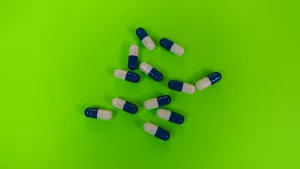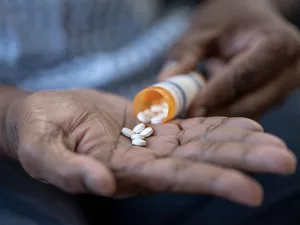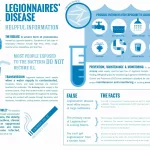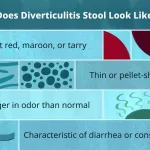Let’s cut straight to the chase: you’ve probably heard a lot of “truths” about antidepressants that feel more like urban legends than science. The big questions most people ask are – “Do they really work?”, “Will they change who I am?”, and “Are they safe enough to try?” Below you’ll find the clear, evidence‑based answers you need, no fluff, no jargon, just the facts that matter to you.
Think of this article as a friendly chat over coffee. I’m not a robot spitting out textbook definitions; I’m a mate who’s done the homework, spoken to doctors, and listened to real stories. By the end, you’ll have a balanced picture of the benefits, the risks, and the practical steps to decide if antidepressants belong in your mental‑health toolkit.
How Antidepressants Work
Neurotransmitters They Target
Most modern antidepressants focus on three key brain chemicals: serotonin, norepinephrine, and dopamine. By tweaking how these neurotransmitters are released, re‑absorbed, or broken down, the meds create a more “balanced” environment for mood regulation. For example, selective serotonin reuptake inhibitors (SSRIs) keep serotonin hanging around longer in the synapse, while serotonin‑norepinephrine reuptake inhibitors (SNRIs) do the same for both serotonin and norepinephrine.
Is the “low‑serotonin = depression” myth real?
The idea that depression is simply a shortage of serotonin has been repeated so often it feels like gospel. In reality, a 2022 study in Nature showed that serotonin levels don’t reliably predict depressive symptoms. The brain is far more complex – inflammation, stress hormones, and even genetics play huge roles. So while many antidepressants increase serotonin, they aren’t “fixing a serotonin leak” – they’re nudging a whole network toward stability.
When will I actually feel better?
Patience is a virtue here. Most people begin to notice a subtle lift after 2 – 6 weeks of consistent dosing. The first couple of weeks may even feel a bit rough as your body adjusts. Early changes often show up as better sleep, more energy, or reduced anxiety, before the full mood boost arrives. Think of it like planting a garden: you water the soil, wait for the sprouts, and gradually watch the flowers bloom.
Effectiveness Overview
What do the numbers say?
When you ask “Do antidepressants work?”, the answer is nuanced but reassuring. Large meta‑analyses report that 40‑60 % of patients experience a meaningful reduction in depressive symptoms after 6‑8 weeks of treatment according to GoodRx. That means a solid majority feel better, though the exact response varies by individual.
Are some drugs better than others?
Differences between drug classes are modest. SSRIs and SNRIs tend to be first‑line because they’re well‑tolerated, but tricyclic antidepressants (TCAs) and monoamine oxidase inhibitors (MAOIs) can be more effective for certain sub‑types of depression. Below is a quick comparison:
| Class | Typical Effectiveness | Common Side‑effects | Notes |
|---|---|---|---|
| SSRIs | 40‑55 % | Nausea, insomnia, sexual changes | First‑line, low toxicity |
| SNRIs | 45‑60 % | Dry mouth, increased blood pressure | Good for pain‑related depression |
| TCAs | 55‑65 % | Weight gain, sedation, cardiac concerns | Often used when SSRIs fail |
| MAOIs | 60‑70 % | Dietary restrictions, hypertensive crisis risk | Reserved for treatment‑resistant cases |
Why combine meds with therapy?
Evidence shows that adding psychotherapy (especially cognitive‑behavioral therapy) boosts remission rates by roughly 15‑20 %according to the AAFP. The meds calm the neurochemical storm, while therapy gives you tools to navigate the thoughts that triggered the storm in the first place.
Myth vs Fact
Myth 1: Antidepressants are addictive
Fact: They do not produce cravings or a “high.” What you may experience is a discontinuation syndrome if you stop abruptly – think of it like caffeine withdrawal. A gradual taper, guided by a prescriber, avoids those unpleasant symptoms.
Myth 2: They change who I am
Fact: The goal is to lift you back to your baseline self, not to rewrite your personality. Some people report a temporary “emotional blunting,” which is a cue to discuss dose adjustments or a switch to another agent. Most patients feel like “themselves again” once symptoms subside.
Myth 3: Immediate relief is guaranteed
Fact: Antidepressants are not emergency mood boosters. Expect a slow build‑up; if you’re hoping for a same‑day miracle, you’ll be disappointed. That’s why clinicians pair medication with lifestyle tweaks and therapy right from day 1.
Myth 4: Side‑effects are unbearable
Fact: Side‑effects differ by drug and dose. Common ones (nausea, headache, mild insomnia) often fade after a few weeks. If they linger, a simple dose tweak or a switch to another class can solve the problem. Remember, the same side‑effect that feels “terrible” to you may be mild for someone else.
Myth 5: You’ll be on them forever
Fact: Many people taper off after 6 – 12 months of stable remission, under a doctor’s supervision. Long‑term use is reserved for chronic or recurrent depression. The key is a shared decision‑making plan that revisits the need for medication regularly.
Myth 6: Weight gain is inevitable
Fact: Weight changes are medication‑specific. Some SSRIs are weight‑neutral, while older TCAs are more likely to cause gain. Lifestyle counseling and, if needed, a switch to a different agent can keep the scale honest.
Myth 7: Antidepressants cause suicidal thoughts
Fact: Overall, they reduce suicidal ideation by alleviating depression. A small subset of youths (under 25) may experience increased agitation when first starting; that’s why close monitoring during the first weeks is crucial according to the BBC.
Dosage & Side Effects
How is the right dose set?
Doctors usually start low (“start low, go slow”) – for fluoxetine, that’s 10 mg daily for the first two weeks, then a bump to 20 mg if tolerated. The goal is the minimum effective dose that eases symptoms without unbearable side‑effects. Each person’s metabolism and genetics can shift the sweet spot, so patience and communication are key.
Typical side‑effects and how to handle them
- Gastro‑intestinal upset: Take the pill with food or switch to a delayed‑release form.
- Sleep disturbances: If the medication energises you, move the dose to morning; if it sedates, try bedtime.
- Sexual dysfunction: Discuss dose reduction, a “drug holiday,” or adding a medication that boosts dopamine.
- Weight changes: Pair the prescription with a balanced diet and regular activity; if weight gain persists, ask about an alternative.
Remember, most of these issues soften after the first few weeks as your body adapts.
When to talk to your prescriber
If you notice any of the following, reach out promptly:
- Side‑effects lasting beyond two weeks.
- Feeling emotionally numb or “flat.”
- Worsening mood or intrusive thoughts.
- Any physical symptoms like rapid heartbeat or severe dizziness.
Open, honest dialogue prevents unnecessary hardship and helps you land on the medication that truly works for you.
Decision Guide
Checklist: Is it time to try a pill?
- Do depressive symptoms interfere with daily life (work, relationships, sleep) for > 2 months?
- Have you tried non‑pharmacologic strategies (therapy, exercise) without sufficient relief?
- Do you have a supportive healthcare provider who listens?
- Are you comfortable discussing potential side‑effects and monitoring?
Talking to your doctor – a script
“I’ve been feeling stuck for a while, and I’m open to medication if it could help. Can you explain the options, the likely side‑effects, and how we’ll decide when to stop?”
Framing the conversation this way makes it collaborative rather than confrontational – you’re the partner in the treatment plan.
Beyond meds: Lifestyle boosters
Even the best antidepressant works better when you give it a supportive environment. Simple habits like 30 minutes of moderate exercise, consistent sleep‑wake times, and a balanced diet can amplify the medication’s effect. Therapy, whether individual or group, equips you with coping tools that medication alone can’t provide.
Bottom Line & Next Steps
Here’s the takeaway: most of the scary stories about antidepressants are exaggerated myths. The science shows that they are effective for a sizable chunk of people, they are generally safe when monitored, and they are not a life‑sentence. The real power lies in understanding the facts, communicating with a trusted prescriber, and pairing medication with healthy habits and therapy.
If you’ve recognized any of these misconceptions in your own thinking, I encourage you to write them down, discuss them with a clinician, and perhaps give a thoughtful trial a chance. Depression is a heavy load – you don’t have to carry it alone, and the right combination of treatment can lift that weight.
What’s your experience with antidepressants? Have you busted a myth that once held you back? Drop a comment below, share your story, or ask any lingering questions. Let’s keep the conversation going and help each other move toward brighter days.























Leave a Reply
You must be logged in to post a comment.